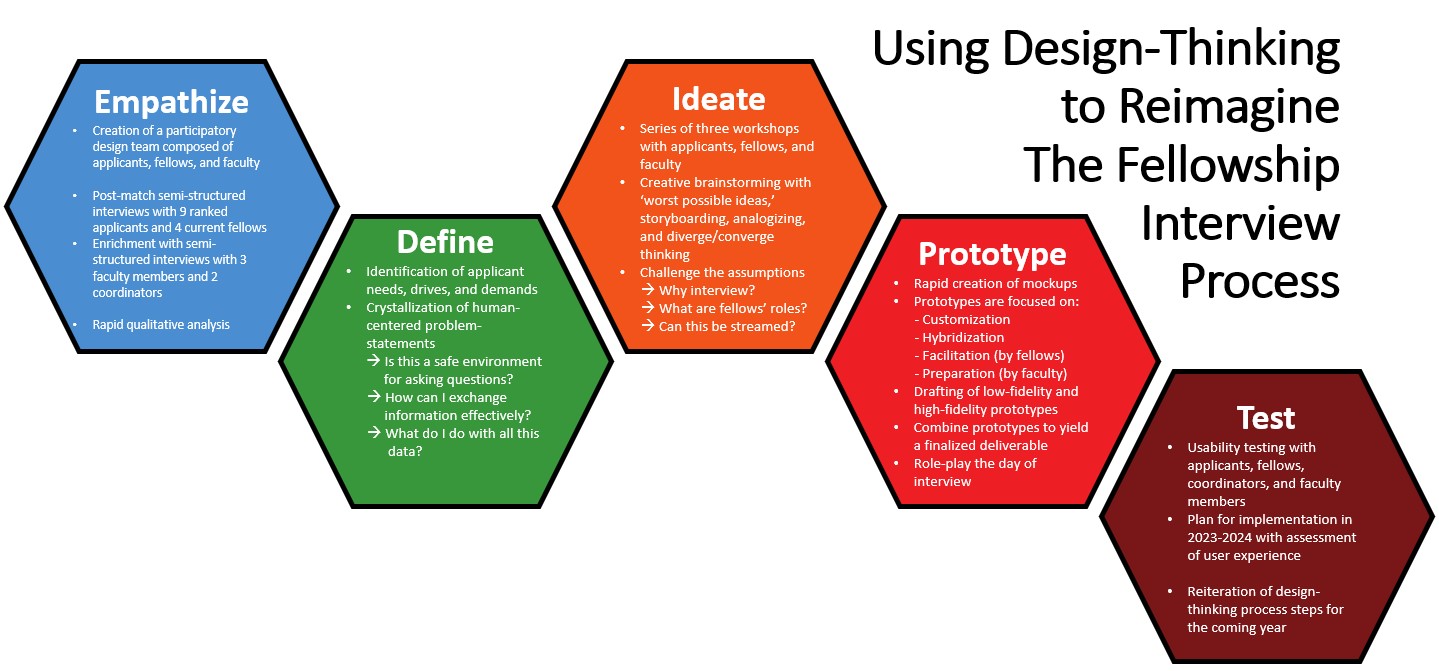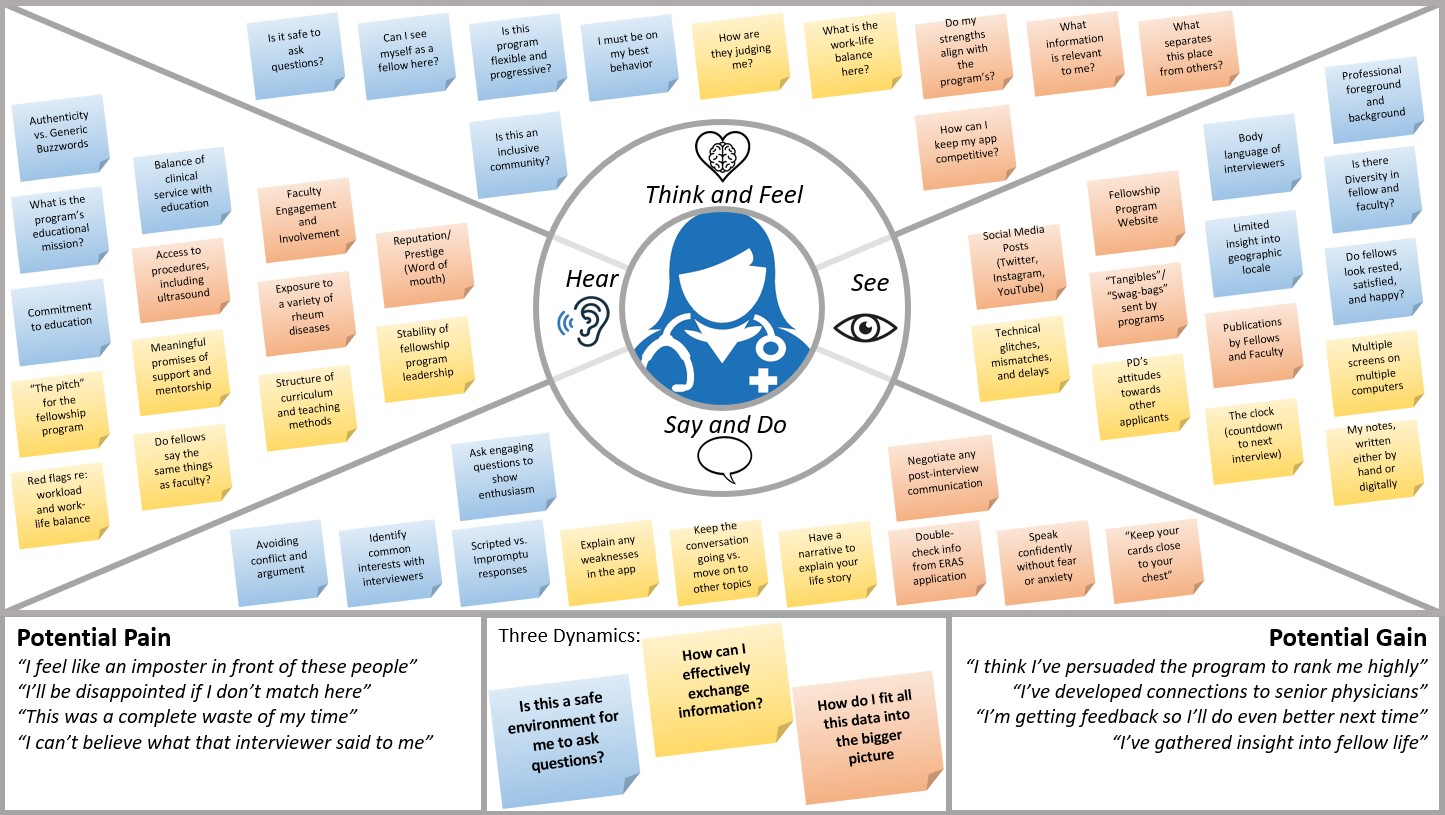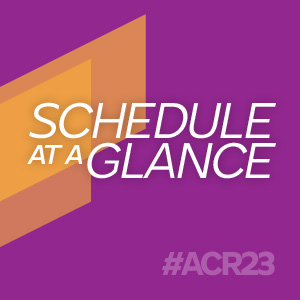Abstract Session
Professional development and education
Session: Abstracts: Professional Education (0763–0768)
0768: Using Participatory Design-Thinking Process to Create a More Applicant-Centered Rheumatology Fellowship Interview Experience
Sunday, November 12, 2023
3:15 PM - 3:25 PM PT
Location: Room 26A-B
- BK
Bharat Kumar, MD, RhMSUS, MMed
University of Iowa Hospitals and Clinics
Iowa City, IA, United StatesDisclosure(s): No financial relationships with ineligible companies to disclose
Presenting Author(s)
Alick Feng, Ayesha Iftekhar, Ruoning Ni, Gatra Gheriani and Bharat Kumar, University of Iowa Hospitals and Clinics, Iowa City, IA
Background/Purpose: Design-thinking is a creative problem-solving process used to better understand users’ needs and experiences so that a product or service can be improved. Its emphasis on empathy, iterative prototyping, and participatory collaboration make it an ideal methodology for innovation in medical education. We apply this framework to refine the virtual rheumatology fellowship interview process, a relatively new and ad hoc development emerging as a necessity during the COVID pandemic, so that virtual interviews can become more applicant-centered.
Methods: This educational quality improvement project uses a design-thinking framework to identify opportunities and challenges for rheumatology fellowship applicants. The investigators use the 5-step process (Empathize, Define, Ideate, Prototype, Test) and incorporate rapid qualitative analysis of semi-structured interviews to innovate the interview experience. The iterative and collaborative nature of this process has empowered participants to co-design an applicant-centered interview experience.
Results: Interviews with fellowship applicants (n=9), fellow physicians (n=4), and faculty members (n=3) identified three major dynamics of the interview process: (1) Is it a safe environment to ask questions? (2) how do I exchange information effectively? and (3) how do I fit all this data into the bigger picture? Creative brainstorming techniques at a series of 3 workshops yielded 4 prototypes emphasizing customization, hybridization, facilitation, and preparation. A finalized applicant-centered interview template was devised in preparation for the 2023-2024 application season.
Conclusion: Design-thinking has yielded insights into three important dynamics that drive applicant experiences. These insights allow for a redesign of processes so that virtual interviews can be more applicant-centered. This framework allows for further iterations and modifications as the needs of applicants and programs evolve over time.


.jpg)
A. Feng: None; A. Iftekhar: None; R. Ni: None; G. Gheriani: None; B. Kumar: None.
Background/Purpose: Design-thinking is a creative problem-solving process used to better understand users’ needs and experiences so that a product or service can be improved. Its emphasis on empathy, iterative prototyping, and participatory collaboration make it an ideal methodology for innovation in medical education. We apply this framework to refine the virtual rheumatology fellowship interview process, a relatively new and ad hoc development emerging as a necessity during the COVID pandemic, so that virtual interviews can become more applicant-centered.
Methods: This educational quality improvement project uses a design-thinking framework to identify opportunities and challenges for rheumatology fellowship applicants. The investigators use the 5-step process (Empathize, Define, Ideate, Prototype, Test) and incorporate rapid qualitative analysis of semi-structured interviews to innovate the interview experience. The iterative and collaborative nature of this process has empowered participants to co-design an applicant-centered interview experience.
Results: Interviews with fellowship applicants (n=9), fellow physicians (n=4), and faculty members (n=3) identified three major dynamics of the interview process: (1) Is it a safe environment to ask questions? (2) how do I exchange information effectively? and (3) how do I fit all this data into the bigger picture? Creative brainstorming techniques at a series of 3 workshops yielded 4 prototypes emphasizing customization, hybridization, facilitation, and preparation. A finalized applicant-centered interview template was devised in preparation for the 2023-2024 application season.
Conclusion: Design-thinking has yielded insights into three important dynamics that drive applicant experiences. These insights allow for a redesign of processes so that virtual interviews can be more applicant-centered. This framework allows for further iterations and modifications as the needs of applicants and programs evolve over time.

Design-Thinking Principles were employed in an iterative fashion through the five steps in order to create a final set of prototypes for testing

Interviews with 9 fellowship candidates revealed a variety of perceptions and observations that were organized into this empathy map. Three major themes predominated: (1) Is this a safe environment for me to ask questions? (2) How can I effectively exchange information? and (3) How do I fit all this data into the bigger picture?
.jpg)
As a result of the design-thinking process, four prototypes were conceived emphasizing (1) Facilitation, (2) Customization, (3) Preparation, and (4) Hybridization.
A. Feng: None; A. Iftekhar: None; R. Ni: None; G. Gheriani: None; B. Kumar: None.



